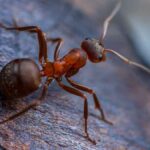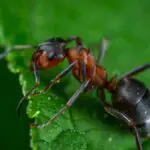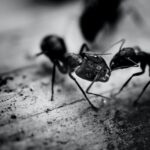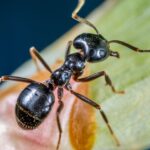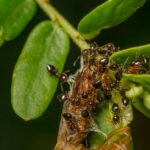Do you ever open your front door and get swarmed by flying ants? If so, you’re not alone.
What causes flying ants in your house, and what can you do about it?
This is a question that many people ask during the summertime. Flying ants are not only annoying, but they can also be a sign of a bigger problem.
This blog post will discuss what causes flying ants in your house and how to get rid of them!
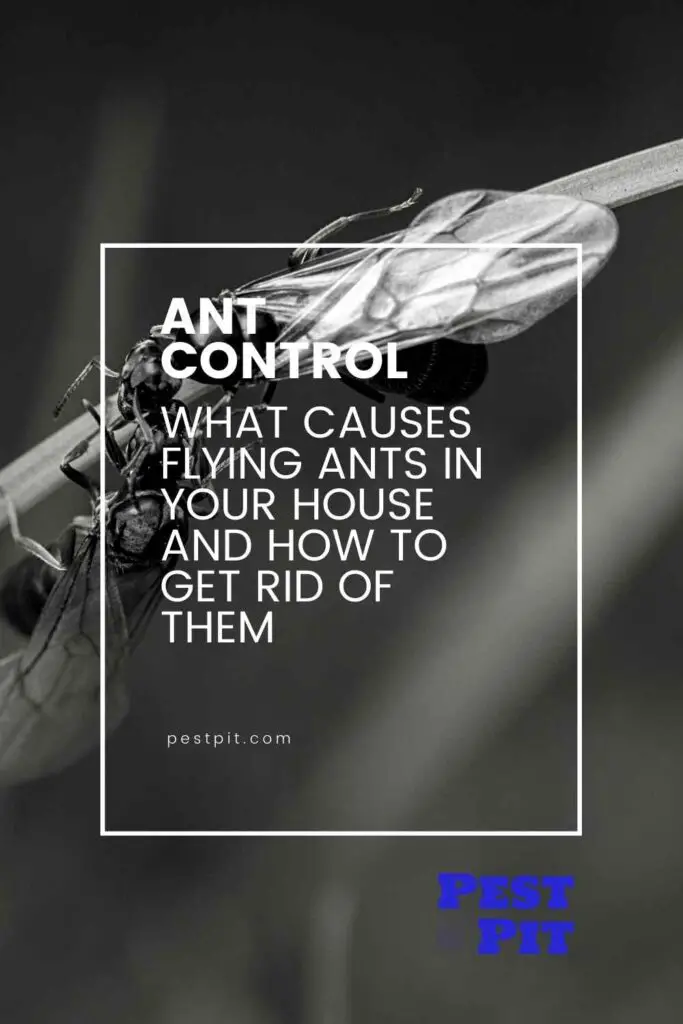
What are flying ants, and what do they look like?
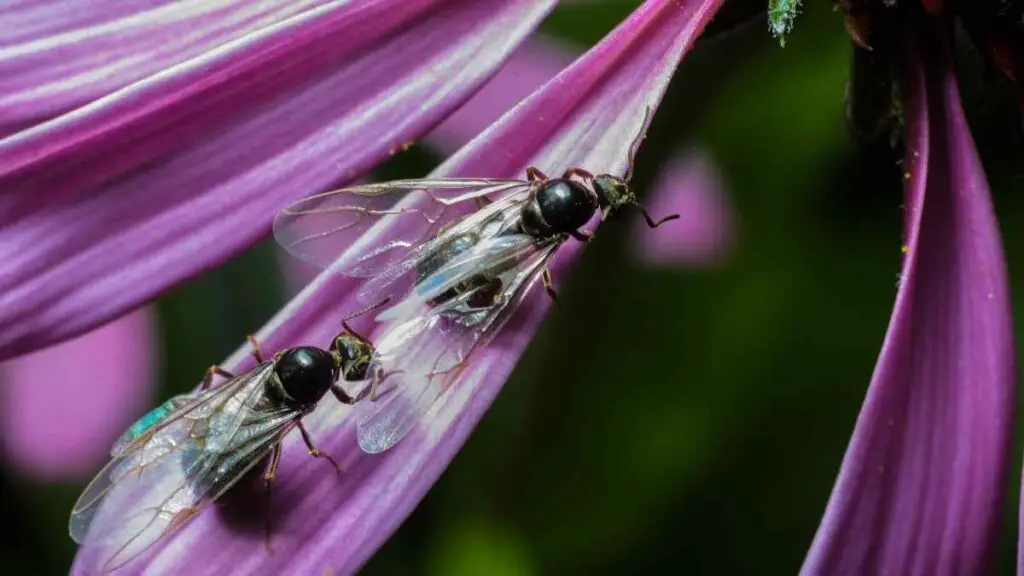
It sounds obvious, but flying ants are a species of ant that can fly.
They are smaller than regular ants and have two pairs of wings. Flying ants are typically black or brown and can be found in many parts of the world.
Flying ants go flying for one reason: To mate! They usually swarm the skies on hot and humid days with no breeze looking for a mate to start a new ant colony.
What are flying ants attracted to?
Flying ants are attracted to several things, including light, moisture, and food.
They are often drawn to homes when the weather gets warm and are looking for a place to establish a new ant colony.
What causes flying ants to enter your house?

There can be a few reasons why flying ants might enter your house. One possibility is that they’re looking for a new place to live.
Flying ants are particularly drawn to dark and humid structures, like basements and crawlspaces. If you notice an increase in flying ants in your home, it might be a good idea to check these areas for moisture and leaks.
Another possibility is that the flying ants in your house are swarming. As we said above, winged ants leave their nests every year to mate. Once they’ve mated, the female ants will return to their nest, and the males will die.
It’s a tough life, eh!
How can you get rid of flying ants in your house for good?
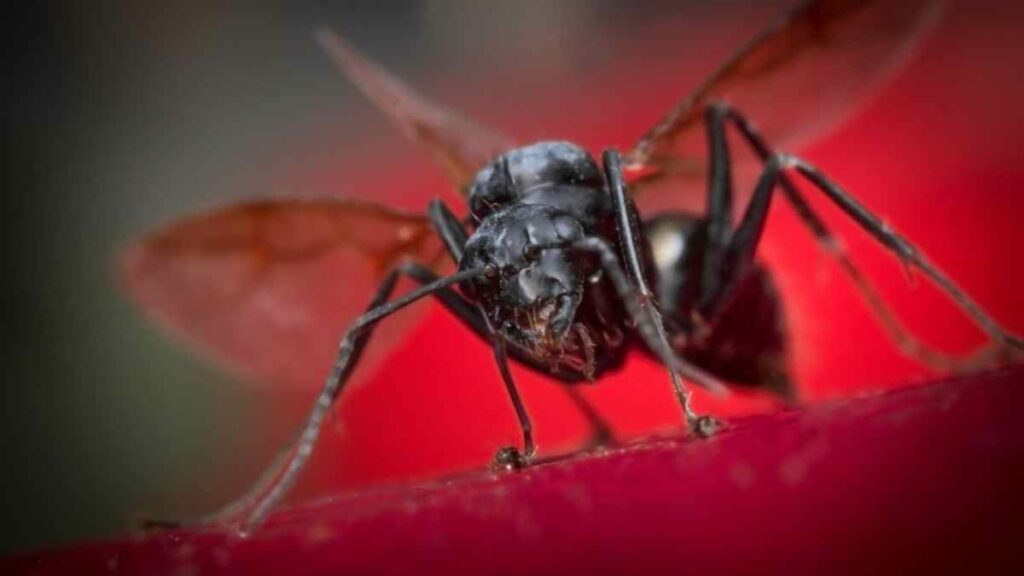
You can do a few things to get rid of flying ants in your house. The most important is to find and address the source of the problem.
Flying ants come into your house to find food, so if you can seal off access to food sources, you can stop them from coming in. Additionally, you can use insecticides
Are there any precautions you can take to prevent flying ants from entering your home in the first place?
You can do a few things to help prevent flying ants from entering your home.
One is to ensure all your windows and doors are properly sealed. As I mentioned above, we usually see flying ants swarming when the weather is hot and humid. But, of course, that also means many people have windows and doors open!
Having windows and doors open is one of the biggest entry points into your home for flying ants. Obviously, closing these will mean your home is hotter, but keeping them open results in flying ants inside your home.
You can try spraying a deterrent such as lemon juice or peppermint oil around the entrances to your home. These have shown some success in keeping regular ants away.
Diffusing peppermint oil, tea tree oil, or cinnamon oil may also help keep flying ant numbers down.
How do I get rid of an ant infestation if it’s already in my house?’
There are a few ways to eliminate flying ants in your home. The most common way is to use an insecticide.
You can purchase an insecticide at a hardware store or grocery store. Be sure to read the directions on the package before using it.
Another way to eliminate flying ants is to use a vacuum cleaner. It’s a challenge but worth a go!
What should I do if I see a swarm of flying ants near my home or property?’
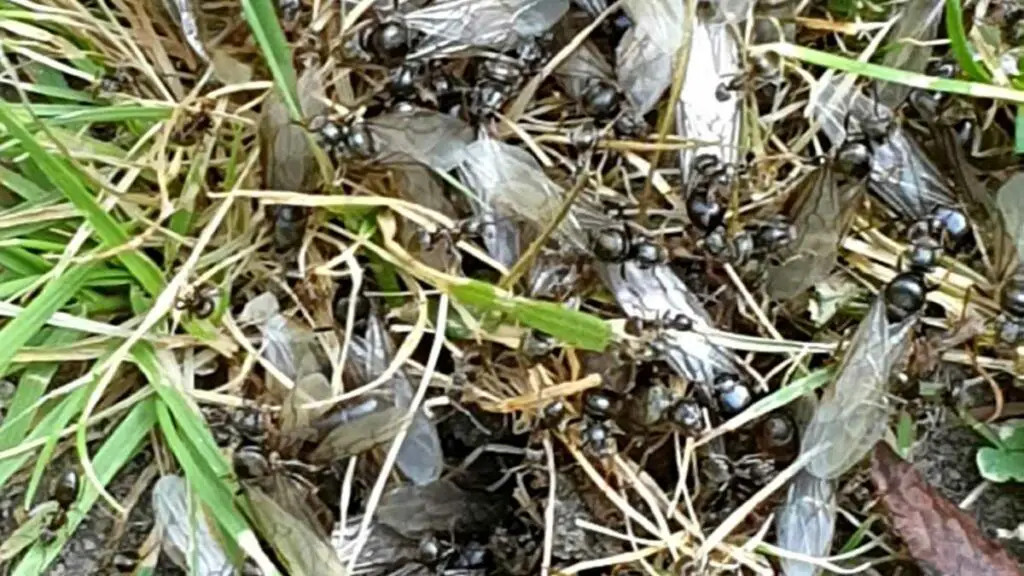
If you see a swarm of flying ants near your home, you should first close any windows and doors. There is a chance the swarm will pass, and you can open them again.
If the flying ants settle in your area, I use an insecticide spray or a natural ant-killing spray to reduce their numbers. An excellent natural ant-killing spray is:
- A full spray bottle of water
- 6 quirts of dish soap
You can add other things, such as tea tree oil or vinegar. Just a few drops should be fine.
When to call a professional

I would only call a professional pest control expert for flying ants if it were a regular issue. The reason is that usually, flying ants are a problem for a day or two, and then they go.
By the time you get the booking arranged and the pest control expert to your home, the problem may have gone.
How do I know they are not termites? What is the difference?
Flying ants and termites are both types of insects that can infest your home, but they are different creatures with different habits and needs.
Flying ants are a type of ant, while termites are a beetle.
Flying ants swarm to mate, while termites swarm to build their nest. Flying ants eat mostly sweets and other plant material, while termites eat wood.
You can get rid of flying ants with insecticide sprays or baits, but you’ll need to call a professional to deal with a termite problem.
Conclusion
Although flying ants can be a nuisance, they are not harmful. Flying ants pose little threat to you. If you want to eliminate them, follow the strategies on this page.
Be sure to clean up any food or water sources that may have attracted the ants in the first place.
And if the problem with flying insects persists, contact your local pest control professional for assistance.
Good luck with your flying ant problem!

